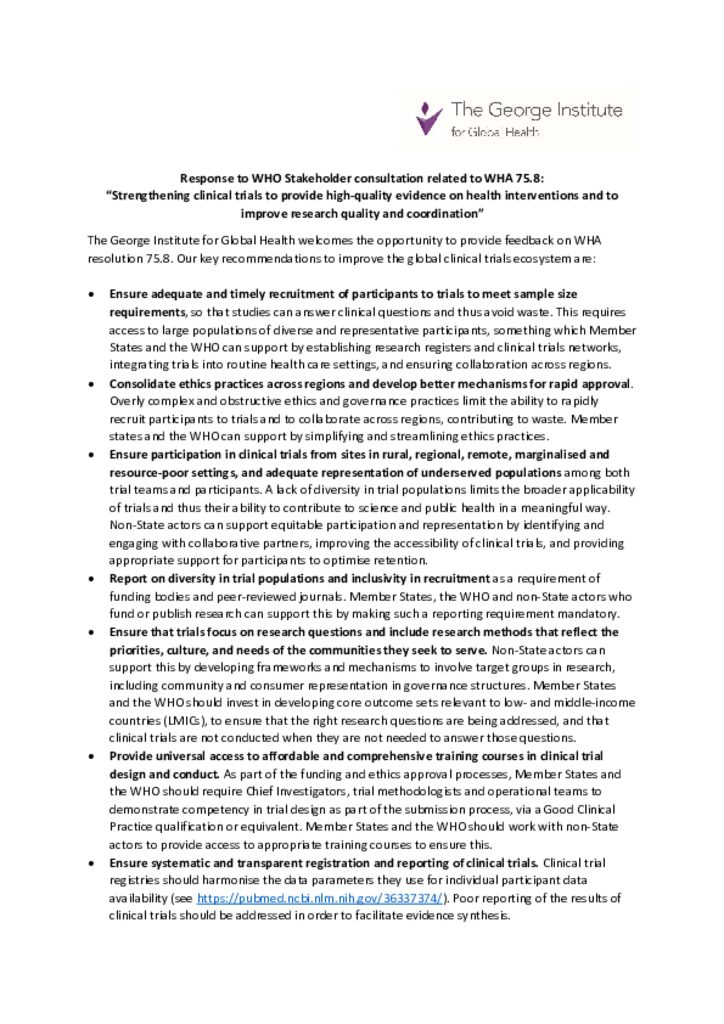
What is best practice in clinical trials?
The George Institute for Global Health is working with local and international regulatory bodies to advocate for best practice in clinical trials.
This means:
- Ensure adequate and timely recruitment of participants to trials to meet sample size requirements, so that studies can answer clinical questions and thus avoid waste. This requires access to large populations of diverse and representative participants, something which Member States and the WHO can support by establishing research registers and clinical trials networks, integrating trials into routine health care settings, and ensuring collaboration across regions.
- Consolidate ethics practices across regions and develop better mechanisms for rapid approval. Overly complex and obstructive ethics and governance practices limit the ability to rapidly recruit participants to trials and to collaborate across regions, contributing to waste. Member states and the WHO can support by simplifying and streamlining ethics practices.
- Ensure participation in clinical trials from sites in rural, regional, remote, marginalised and resource-poor settings, and adequate representation of underserved populations among both trial teams and participants. A lack of diversity in trial populations limits the broader applicability of trials and thus their ability to contribute to science and public health in a meaningful way. Non-State actors can support equitable participation and representation by identifying and engaging with collaborative partners, improving the accessibility of clinical trials, and providing appropriate support for participants to optimise retention.
- Report on diversity in trial populations and inclusivity in recruitment as a requirement of funding bodies and peer-reviewed journals. Member States, the WHO and non-State actors who fund or publish research can support this by making such a reporting requirement mandatory.
- Ensure that trials focus on research questions and include research methods that reflect the priorities, culture, and needs of the communities they seek to serve. Non-State actors can support this by developing frameworks and mechanisms to involve target groups in research, including community and consumer representation in governance structures. Member States and the WHO should invest in developing core outcome sets relevant to low- and middle-income countries (LMICs), to ensure that the right research questions are being addressed, and that clinical trials are not conducted when they are not needed to answer those questions.
- Provide universal access to affordable and comprehensive training courses in clinical trial design and conduct. As part of the funding and ethics approval processes, Member States and the WHO should require Chief Investigators, trial methodologists and operational teams to demonstrate competency in trial design as part of the submission process, via a Good Clinical Practice qualification or equivalent. Member States and the WHO should work with non-State actors to provide access to appropriate training courses to ensure this.
- Ensure systematic and transparent registration and reporting of clinical trials. Clinical trial registries should harmonise the data parameters they use for individual participant data availability (see https://pubmed.ncbi.nlm.nih.gov/36337374/). Poor reporting of the results of clinical trials should be addressed in order to facilitate evidence synthesis.
For further information, read our submission to the World Health Organisation. The WHO are currently developing new guidance on best practices for clinical trials, both for national governments and for non-state actors. A draft of the WHO Guidance should be available for consultation with stakeholders by late 2023. You can learn more here.


